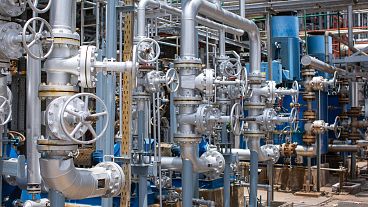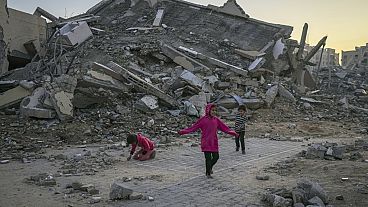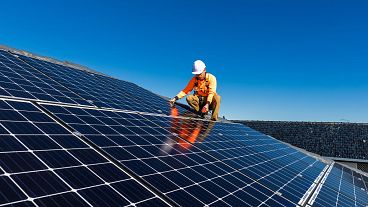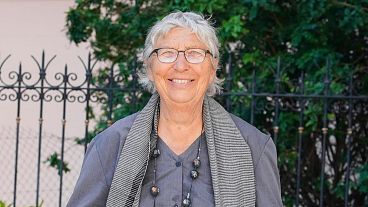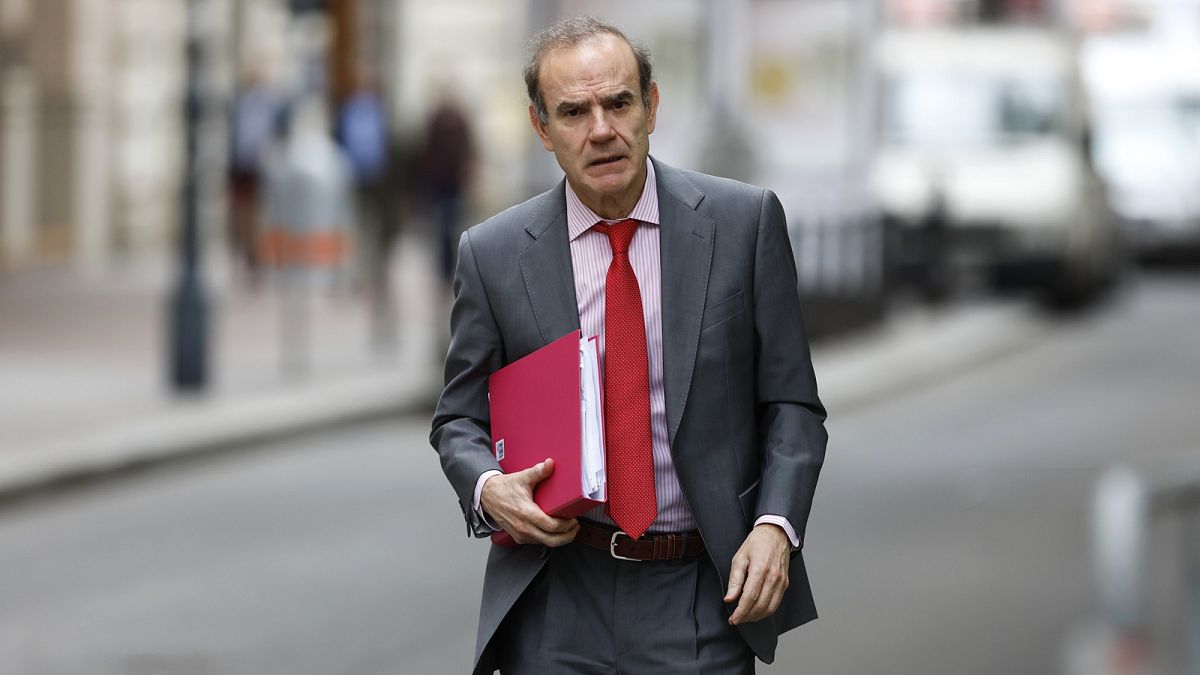Enrique Mora, the deputy secretary general of the European External Action Service (EEAS), attended the swearing-in ceremony of Iran's new president.
The European Commission on Thursday stood by its decision to send a senior diplomat to attend the inauguration of the new president of Iran despite the backlash it sparked among members of the European Parliament.
Enrique Mora, the deputy secretary general of the European External Action Service (EEAS), the bloc's diplomatic branch, who also serves as chief staff for High Representative Josep Borrell, flew to Tehran to attend the swearing-in ceremony of Masoud Pezeshkian, Iran's new president, on behalf of the EU.
Member states opted for their Tehran-based representatives, rather than sending foreign ministries.
The Spaniard's presence quickly sparked a backlash, with several MEPs describing it as a blatant contradiction with the bloc's fundamental values.
Iran has repeatedly been accused of propping up Russia's invasion of Ukraine, leading a brutal crackdown on human rights, holding EU nationals captive for political gains, financing terrorist movements across the world and pursuing a nuclear programme in open defiance of United Nations resolutions.
"Unbelievable," said Bart Groothuis, a Dutch legislator with the liberal group Renew Europe. "European countries did not attend President Putin's inauguration; apparently Iran is different. I fail to understand this logic."
Latvia's Rihards Kols, from the hard-right European Conservatives and Reformists (ECR), accused Mora of doing "harm by legitimizing a regime that brutalizes its own people, sponsors terrorism globally, and sows discord."
Kols shared a video clip of the inauguration that showed Iranian MPs chanting "Death to America and Israel!" and added: "This is a disgrace."
Hannah Neumann, a Greens MEP and vocal critic of the Iranian regime, said Mora "should know when to accept an invitation to a ceremony – and when not" and rebuked the diplomat for taking part in an "all-make family picture" that featured, among others, Ismail Haniyeh, the political leader of Hamas, which the EU lists as a terrorist organisation. (Haniyeh was killed in an airstrike hours after attending the inauguration.)
But for the EEAS, Mora's attendance was no problem at all because it was in line with the bloc's official policy of "critical engagement," which combines, on the one hand, open communication channels and, on the other, the imposition of sanctions when needed.
Mora was present for the inauguration of President Ebrahim Raisi in 2021, also amid controversy.
"This was the basis for (Enrique Mora) to be in Tehran for the inauguration and to use his interaction with officials of the incoming Iranian administration in Tehran to convey EU positions on all the issues of concerns we have related to Iran," Peter Stano, the Commission's spokesperson for foreign affairs, said on Thursday.
"Our relations with Iran are at a very, very low level for different reasons: for violation of human rights of people in Iran, for Iran's support for Russia's illegal aggression against Ukraine, for arbitrary detentions of EU citizens," Stano went on.
"So these are all issues that we are actively tackling with them. These are the messages we are conveying to them. These are the issues we are trying to solve with them."
Other topics included Tehran's continued backing of Hamas, Hezbollah and the Houthis, who have used Iran-supplied weapons to attack Western vessels in the Red Sea.
The spokesperson noted the EU had long acted as a "facilitator" of the Joint Comprehensive Plan of Action (JCPOA), the multilateral agreement to limit the development of Iran's nuclear programme. The deal is highly appreciated in Brussels, as it is seen as an example of the bloc's diplomatic prowess, but has been in a moribund state since the 2018 withdrawal of the United States.
Efforts to revive the Iran nuclear deal have been going on for the last few years, with no major breakthrough. Enrique Mora has been the EU's point man in the talks.
After he visited Tehran, Mora shared a picture on social media with Abbas Araghchi, an Iranian diplomat who had previously been involved in the nuclear agreement and is reportedly tipped to be the country's next foreign minister.
"Good to recover contact with (Abbas Araghchi) in a new chapter for Iran," Mora wrote. "Looking forward to working with him again."

